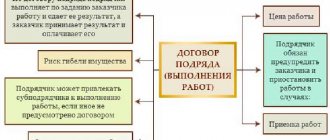Possibility of reducing penalties
The general rule of Article 333 of the Civil Code of the Russian Federation applies to penalties (including penalties) under government contracts, stating that such a penalty can be reduced if it is disproportionate to the main obligation. To do this, the debtor must declare a reduction before the end of the consideration of the case on the merits and the removal of the court of 1st instance to the deliberation room.
If you found this article helpful, please rate it on the star scale below, with 5 stars being very helpful.
We want you to read only interesting materials, and we will be grateful for your feedback!
What is the condition for a penalty?
The law requires that penalties for failure to fulfill a contract be agreed upon in writing. The penalty provision contained in the contract is called a contractual penalty. The penalties and fines established by the agreement must be reasonable and consistent with the consequences of failure to fulfill obligations.
IMPORTANT!
Failure to comply with this condition leads to a prohibition of its recovery by the injured party:
- the contractor has no right to demand a fine for non-payment for work performed;
- the customer is deprived of the right to demand penalties and fines for late completion of work.
In some cases, in accordance with Article 332 of the Civil Code, the creditor has the right to demand the imposition of sanctions for failure to fulfill contractual obligations if they are established by legislative act (legal penalty). Thus, in the field of public procurement, in accordance with Federal Law No. 44-FZ dated 04/05/2013, penalties and fines are established for late contract agreements for improper fulfillment of obligations by both the customer and the contractor.
Is it possible to reduce the amount of fines?
Monetary sanctions for improper fulfillment of contractual obligations are collected in compliance with the mandatory claims procedure. Send a claim to the guilty party, describing the violation identified, the amount and calculation of penalties. If the guilty party does not respond to the claim, file an application for recovery in court.
If the amount of the penalty for violation of contractual terms is disproportionate to the damage caused, the guilty party has the right to file a claim in court to reduce it (Article 333 of the Civil Code of the Russian Federation).
Key rate size
1. The issue of changing the key rate of the Central Bank of the Russian Federation
In p. 5 and paragraph 7 of Art. 34 of Law 44-FZ literally states that the penalty is calculated on the date of payment of the penalty. But, because the key rate may change throughout the duration of the contract (especially if it is a contract with several stages), causing difficulties in calculations.
Based on the explanations of paragraph 38 of the Review of Judicial Practice, approved by the Presidium of the RF Armed Forces on June 28, 2017, as well as judicial acts of the RF Armed Forces on the consideration of specific cases (Determinations of the RF Armed Forces dated December 4, 2018 N 302-ES18-10991, dated September 18, 2019 N 308 -ES19-8291, dated September 18, 2019 N 308-ES19-8291), we can conclude that:
- if we are talking about unfulfilled payment obligations under the contract, then the amount of the penalty is collected on the date of the decision. Accordingly, the calculation uses the key rate of the Central Bank of the Russian Federation on the corresponding date;
- when collecting penalties on voluntarily fulfilled obligations, the size of the key rate on the date of such fulfillment is used.
2. The effect of industry special norms when calculating penalties
If industry standards establish other rules for determining penalties that differ from Law 44-FZ (when concluding contracts/agreements on gas, energy, heat supply, water supply and sanitation), then special rules must be followed. As a rule, industry rates for calculating penalties are higher than those established by Law 44-FZ.
Maximum repair period under warranty
The law limits the time for warranty repairs, namely, paragraph 1 of Article 20 of the Law of the Russian Federation “On the Protection of Consumer Rights” clearly states: “The period for eliminating product defects, determined in writing by agreement of the parties, cannot exceed forty-five days.”
Thus, the law provides for a deadline for warranty repairs of goods, and accordingly, if this period is exceeded, the contractor will bear the liability provided for by law, read more about which below.
The manufacturer or seller cannot extend the warranty repair period arbitrarily unilaterally, or extend it citing certain oral agreements with the consumer.
An increase in the 45-day warranty repair period for a product is possible only by written agreement of the parties.
The parties may extend the period of warranty repairs if during the repair work it becomes clear that they cannot be completed on time, however, the law does not oblige the consumer to do this, only granting him such a right.
In addition, the timing of warranty work cannot be affected by the lack of spare parts for its implementation. This is due to the fact that in order to ensure the possibility of repair and maintenance of the product throughout its entire service life, the manufacturer legally obliged to produce and supply spare parts to repair and maintenance organizations for the product produced by him not only during the period of its production, but also after discontinuation of a product during its service life, and if the service life is not established by the manufacturer, then spare parts must be available for 10 years from the date of transfer of the product to the consumer.
Thus, the manufacturer or seller cannot rely on the lack of spare parts or parts as justification for delaying warranty repairs.
The seller's arguments about the violation of the repair period by the service center will also be untenable , since the seller (manufacturer), and not the service center, is legally responsible for such a violation.
If the period for repair work under warranty is agreed upon between the seller and the consumer and is less than 45 days, then you should be guided by exactly the period specified in the repair documents. Violation of this period also entails legal consequences for the seller (manufacturer), and in this case the seller does not have the right to refer to the 45-day maximum repair period.
Consumer rights lawyer in St. Petersburg. Tel.+7 Telephone consultation
Useful recommendations: When submitting a product for warranty repair, carefully ensure that the acceptance of the product is properly completed. Everything must be documented, no verbal agreements, otherwise it will subsequently be impossible to prove a violation of the repair deadlines. The document confirming the transfer of the goods for warranty repair (transfer and acceptance certificate, work order, etc.) must be as informative as possible; it must indicate the date the goods were accepted for warranty repairs, information about the defect declared by the consumer, the condition of the goods (working /non-working), the most complete description of the product, any visible defects and other details, as well as the repair period, if agreed upon between the parties.
If the seller doubts that the case is covered by warranty and announces his intention to check the quality of the product, the consumer has the right to be present and ensure that the seller is not able to carry out any unwanted manipulations with the product.
Also, the consumer has the right to be present when the seller conducts an examination to determine the causes of the malfunction (breakage) of the product.
In this case, it is undesirable to leave the goods to the seller until the examination is carried out, and present it directly to the expert on the appointed date and time. This will also protect the consumer from possible unfair actions of the seller in relation to the goods. Attention: After warranty work is carried out, the seller (manufacturer) must provide the consumer in writing with all information about the work performed ; the relevant document must indicate:
- Date of consumer request for warranty repairs
- Date of receipt of goods for repair
- Information about the defect or breakdown reported by the consumer
- Information about how the repair was carried out and what spare parts and/or components were used
- Date of actual completion of warranty repairs
- Date of delivery of the product to the consumer after repair.
Warranty repair period under the consumer protection law
What is the warranty repair period under the consumer protection law?
If during the warranty period a defect is identified in the product (breakdown, manufacturing defect, etc.), then the consumer is given the legal right to present to the seller, manufacturer, authorized organization or importer one of the requirements listed in Art. 18 of the Law of the Russian Federation “On the Protection of Consumer Rights”, at your choice.
One of the alternatives is the consumer’s requirement to carry out free elimination of product defects that were discovered during the warranty period, that is, for warranty repair of the product.
Warranty repairs assume that they are free of charge, that is, all costs associated with the repairs are borne by the seller (manufacturer, importer).
As a general rule, the period during which a product must be repaired under warranty is determined by an agreement between the manufacturer (seller, importer, authorized organization) and the consumer, that is, it is specified in the documents drawn up when accepting the product for warranty repair .
If the warranty repair period is not agreed upon with the consumer, then one should be guided by Article 20 of the Law on the Protection of Consumer Rights, according to which the manufacturer, seller, importer or authorized organization is obliged to eliminate defects in the product immediately , that is, this period should be minimal. Of course, you need to take into account the characteristics of the product, the nature of the malfunction or breakdown, and other circumstances in order to correctly calculate the time objectively required for repairs. The period for correcting product defects under warranty is legally limited; read more about this below.
Concept and types
The concept and rules for collecting a penalty are set out in paragraph 2 of Chapter 23 of the Civil Code: the injured party has the right to recover a penalty for violation of deadlines under a work contract for non-fulfillment or improper fulfillment of an obligation in the form of:
- fine;
- penalties.
The fine is collected at a time, set in a fixed amount or as a percentage of the cost of the unfulfilled obligation (for example, the cost of unfulfilled work).
Sanctions for failure to fulfill obligations are usually established in the form of penalties under the contract for violation of deadlines. This type of penalty is collected in the established amount for each period of delay (day, month, quarter, etc.).
How to calculate the amount
If the penalty is established in the form of a fine, determining the amount is simple: it is either a fixed amount or a percentage of the amount of the monetary obligation.
As a rule, the penalty for late payment of a contract is set in the form of an interest rate (annual or per day) of the estimated amount. The settlement amount is the amount owed or the value of the work not completed. Penalties are accrued from the day following the day when the obligation should have been fulfilled in accordance with the agreement until the day of actual repayment.
Calculation at annual interest rate:
Calculation at daily interest rate:
Collection procedure
To resolve disputes resulting from violation of deadlines for performing work under a contract by the contractor or non-payment by the customer, mandatory pre-trial settlement has been established. Without preliminary claims work, the court will not accept the statement of claim.
The claim is sent to the guilty party in writing. It is compiled in free form. It states:
- sender and recipient data;
- date, place of origin, number of outgoing letter;
- the essence of the requirement;
- amount and calculation of the penalty to be paid;
- the period within which the injured person requires repayment of the debt;
- recipient's bank details.
The claim is signed by a person who has the right to act in the interests of the injured party.
If the claim is left without consideration and the debt is not repaid after 30 calendar days, the creditor has the right to file a statement of claim in court (clause 5 of article 4 of the APC). The claim is sent to the court in paper or electronic form.
The claim is filed in court, unless otherwise agreed by the parties, at the location (residence) of the defendant. Attach to the statement of claim documents confirming the claim: contract, work completion certificates, payment documents, calculation of the amount to be recovered, claim (previously sent to the debtor), correspondence of the parties, other documentary evidence necessary for the consideration of the dispute.
When filing a claim, a state fee is charged. Its size is determined by clause 1 of Art. 333.21 Tax Code.
Learn more about filing a claim for money.
IMPORTANT!
The court has the right to reduce the amount recovered if it is disproportionate to the consequences of the violation of the obligation.
If the contract does not contain provisions on penalties
If sanctions are not established either by contract or by law, the injured party has the right to protect its interests by other measures provided for by the Civil Code:
- The contractor has the right to demand interest for non-payment for work performed based on the key rate of the Bank of Russia (Article 395 of the Civil Code).
- The customer has the right to refuse to fulfill the contract and demand compensation for losses from the contractor if he does not perform the work or performs it too slowly (Article 715 of the Civil Code). In this case, the contractor is obliged to return the advance received.





